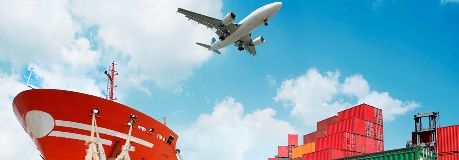Casualty Insurance
Amwins delivers primary and excess casualty insurance solutions for your clients' most complex risks.

Casualty Insurance
Amwins delivers primary and excess casualty insurance solutions for your clients' most complex risks.

Custom solutions and market clout at your fingertips
With more than 1,000 dedicated casualty professionals across the country, collaboration is in our DNA. Amwins delivers trusted consultation, market access and creative program structures to place coverage for even the most complex and layered accounts —providing value-added resources, unmatched service and expertise every step of the way.
$11.3B
annual U.S. premium placements
1,000+
dedicated professionals
700
casualty markets we place business with
Casualty areas of specialty
Data & Analytics
We harness our robust, proprietary data (Amwins DNA) to provide benchmarking and other useful reports, develop innovative products, and much more.
Claims advocacy
In-house claim advocates that help resolve coverage disputes, service issues, valuation discrepancies, and payment challenges.
Custom product development
Casualty resources + insights
Stay up to date on emerging casualty insurance trends and topicsFreight Forwarders: Complex Services with Complex Coverages
What Is A Freight Forwarder?
The meaning of the term “freight forwarder” will vary depending on who you ask. Even the Federal Motor Carrier Safety Administration (FMCSA) and the Federal Maritime Commission (FMC) have different definitions for the term. Let’s start by comparing these definitions:
According to the FMCSA: (A freight forwarder is) A company that provides transportation of property or household goods, for compensation, in interstate commerce.
According to the FMC: (A freight forwarder is) An entity that arranges cargo movement to an international destination.
Regardless of which definition you prefer, there are important distinctions based on where freight forwarders operate. Freight forwarders dealing with transportation of goods within the United States are considered carriers and are liable as such, while freight forwarders dealing with international transportation are considered intermediaries and, in some cases, may or may not be considered carriers.
It’s also important to understand that there are many types of freight forwarders, both domestically and internationally, and they are defined by the types of services each provides. Types of freight forwarders include:
Freight Brokers: Freight brokers only arrange domestic or international transportation and do not take possession of the goods or appear in the bill of lading (in-house or master) as a carrier.
Customs Broker: Customs brokers provide services (mostly to importers) by clearing goods through customs obstacles, as well as calculating taxes and duties, completing necessary paperwork, communicating with government authorities, and arranging inland transit to the final destination.
Non-Vessel Operating Common Carriers: Since they assume some of the traditional roles of an ocean carrier, non-vessel operating common carriers (NVOCC) are considered the carrier to the shipper and the shipper to the carrier. Their responsibilities include issuing a house bill of lading and arranging the efficient and cost-effective transportation of the consignor’s goods directly with the ocean and inland carriers. In assuming this role, the forwarder is exposed to liabilities and positive limitations carried by common carriers.
Indirect Air Carrier: Indirect air carriers assume some of the traditional roles of air carriers, such as issuing house air waybills and arranging the efficient and cost-effective transportation of the consignor’s goods directly with air carriers. The exposure to liability is similar to that of an NVOCC but is based on different generally accepted conventions.
Motor Truck Carrier: Owning and operating trucks or rails is not required to be considered a motor truck carrier; issuing freight receipts or bills of lading can turn a freight broker into a legally liable carrier. Motor truck carriers are legally required to have a minimum limit of cargo liability; however, these limits under-represent their daily exposure.
Warehousemen: Warehousemen provide storage at owned (or leased) warehouses. The warehouseman is liable to the owner for the stored goods to the extent described on the warehouse receipt or contract.
Determining Coverage Based On Services
With the understanding that no two forwarders are the same, the only way to analyze a forwarder’s exposure is based on the services it provides. Many policies exist for these exposures; some are standard, non-malleable forms, some are directed to individual services, and some are designed on a case-by-case basis to better protect the forwarder’s operations (which is usually the case for forwarders performing multiple services).
Standard Forms:
Motor Truck Cargo Legal Liability Forms
These forms are designed specifically for motor truck carriers. Most of these forms are standard and do not permit any deviation from this one service. They can be used for trucking companies without brokerage or international divisions. Coverage includes defense costs.
Contingent Motor Truck Cargo Legal Liability Forms
These forms are designed only for domestic freight brokers. Most of these forms are standard and do not permit any deviation from this one service. They can be used for freight brokering companies without international divisions. Coverage includes defense costs.
Cargo Legal Liability
These are broader standard forms for which the underwriter may or may not include limits depending on services. Coverage is contingent upon the insurance carrier and may or may not include international shipments. It does, however, usually cover both shipments as a carrier (Issuing B/L) and a broker (contingent). Coverage may include defense costs.
Marine Contingent Liability
These forms are designed only for international freight brokers. Most of these forms are standard and do not permit any deviation from this one service. They can be used for broking companies without domestic brokerage services. Coverage may include defense costs.
Non-Standard Forms:
Shipper’s Interest
This coverage provides the forwarder with the ability to offer all-risk cargo and warehouse insurance to their clients on a per-shipment basis. The premium paid comes from the forwarder’s client once coverage is accepted. The form should be a broad ocean cargo form inclusive of inland transit and warehouse coverage (when applicable). This facility gives the forwarder a competitive edge; it makes the forwarder a “one-stop shop.”
Carrier’s Legal Liability
This form is designed to cover the forwarder while acting as a carrier on truck, rail, ocean vessel or air shipments. It also includes legal representation, legal expenses, uncollected freight, debris removal expenses, suit and labor expenses, and temporary storage, among other coverages. It also provides the carrier with the ability to subcontract shipments under the terms of the policy.
Freight Broker’s Legal Liability (or “Forwarder’s Legal”)
This form is designed to cover the forwarder while acting as a broker on truck, rail, ocean vessel or air shipments. It includes legal representation, legal expenses, debris removal, temporary storage, suit and labor expenses, among other coverages.
Freight Forwarders Errors & Omissions
This form is designed to cover the forwarder while acting as a carrier or broker for breach of any obligation, negligent act, error or omission, including but not limited to incorrect instructions, faulty arrangements or clerical errors. It defends the insured, covers expenses taken upon by the insured at the insurance carrier’s request, and includes debris removal.
Warehousemen Legal Liability
This form covers the forwarder if, as part of their operation, they store or warehouse goods of others under their own warehouse receipt or scheduled contract.
Key Factors To Consider
Having multiple coverages with multiple carriers may put you at risk for gaps in coverage or divisional loss situations. It’s important to review all policies carefully and to consider comprehensive options that place all coverage “under one roof.”
Standard forms work for simple operations but likely aren’t adequate for forwarders who provide multiple services.
Each forwarder must be analyzed in detail by an experienced underwriter capable of identifying gaps in coverage and understanding industry nuances.
Selecting an insurance carrier with a reputation for service, expertise and flexibility, as well as specialized knowledge of this complex space, will put you on the right path for acquiring the coverage you need.
Conclusion
Given the continual rise of e-commerce and the global supply chain that has ensued, understanding freight forwarder services will be paramount to protecting the future of business.
AmWINS Specialty Logistics Underwriters (ASLU), an AmWINS Group company, is a managing general agency specializing in the complex risk factors of the logistics and cargo industry. ASLU is dedicated to offering a high level of service to their clients through a unique balance of industry knowledge, responsiveness and technology. To learn more, visit amwins.com/aslu.
- Casualty
- Marine and Logistics
- Property & Casualty
- Transportation
Filling excess placements despite changes in exposure.
When an insured with five New York City hotels converted operations to COVID-19 shelters for the local homeless population, the change in exposure threw a wrench in the renewal. While the general liability carrier stayed on the account, the excess carrier discontinued coverage. The retail agent contacted Amwins to fill the excess coverage for these locations.
With a local government agency managing and operating these shelters, the insured’s exposure was lessened. However given the venue, occupancy and market conditions, filling out the program was still an uphill climb. Through our market access and industry expertise, we were able to fill the policy with just two layers - securing a big win for our retail client and their insured.


